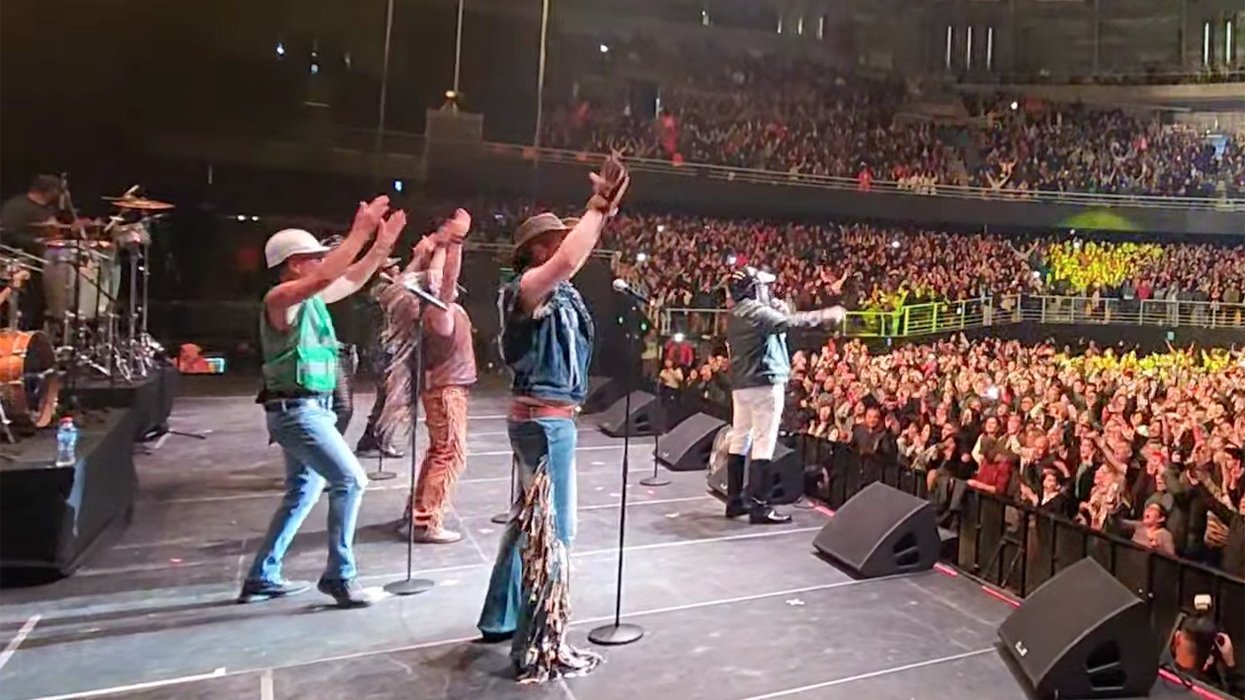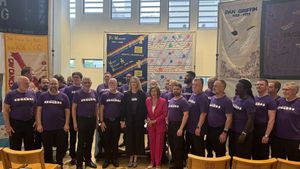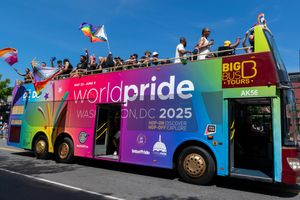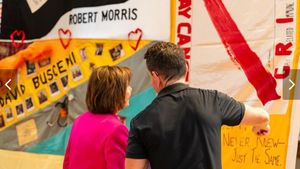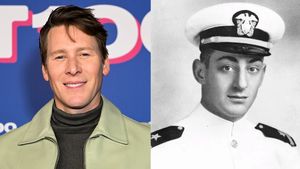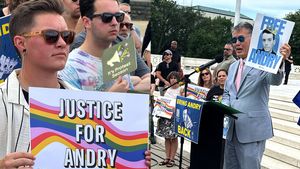Will the real Village People please stand up?
For nearly 50 years, when most people thought of the Village People, they thought of gay culture. However, now, the band seems to be mostly relevant due to the use of its songs by upcoming president Donald Trump.
How could these band members, once deemed gay pop icons, turn into allies of one of the most anti-LGBTQ+ presidents? Well, keep scrolling to find out the answer!
When was the Village People founded?
The Village People, as a group, was created in 1977 by French music producers Jacques Morali and Henri Belolo. Morali, who was gay, and Belolo came up with the idea of a band inspired by gay disco parties in Greenwich Village. "I think to myself that gay people have no group, nobody to personalize the gay people, you know?" Morali told Rolling Stone in 1978 about forming the band (via DW News).
Why are the Village People gay icons?
The members of the group wear drag costumes that originally came from gay fantasies: a cop, a Native American chief, a cowboy, a construction worker, a biker, and a sailor. Several songs, like "In the Navy" and "Y.M.C.A." are all about celebrating male bonds and male gathering spaces, and the song "Macho Man" plays on hyper-masculine stereotypes – all things relevant to gay culture.
How many original Village People members are still in the band?
Victor Willis — the band's lead singer who co-wrote some of the group's biggest hits, such as "Y.M.C.A" and "Macho Man" — left the band in 1979 to go solo.
When Morali died of AIDS-related complications in 1991, Willis was the only surviving songwriter attached to the group. In 2010, he filed a lawsuit and was awarded 50 percent of the copyright to the group's songs, as well as control over the group's name and branding. He then rejoined the group and filled out the rest of the lineup with all new members.
What is the Village People's relation to Donald Trump?
Willis completely denies that the Village People's songs are about gay people, queer culture, or hooking up.
"I will sue the next media organization, or anyone else, that falsely suggests that "Y.M.C.A. is somehow about illicit gay sex," Willis warned people via Facebook. He subsequently added, "Get your mind out of the gutter, please!"
In 2020, Trump started using the songs "Macho Man" and "Y.M.C.A." at rallies, and while many fans expected the Village People to block him from using the songs, Willis announced that the band would allow it.
"He has remained respectful in his use of our songs and has not crossed the line," Willis said at the time.
When Trump started using the songs again in the 2024 election, Willis again defended the president's choice of songs.
"Y.M.C.A. has benefited greatly from use by the President Elect. For example, Y.M.C.A. was stuck at #2 on the Billboard chart prior to the President Elect’s use. However, the song finally made it to #1 on a Billboard chart after over 45 years (and held on to #1 for two weeks) due to the President Elect’s use," Willis wrote. "The financial benefits have been great as well as Y.M.C.A. is estimated to gross several million dollars since the President Elect’s continued use of the song. Therefore, I’m glad I allowed the President Elect’s continued use of Y.M.C.A. And I thank him for choosing to use my song."
Now, the group will be performing at Trump's inauguration.
How do the original Village People feel?
Jim Newman, a former member of the band for eight years, put out a video on Threads expressing his disappointment at the current version of the Village People.
"The Village People that were around for about 40 years had a strong, loyal gay following," he said. "There was a lawsuit about four years ago, they took away the name Village People from our band, the band that had been around forever, a lot of originals still in the band, and they gave it to an ex-member who was fired a couple years in. And he started a new group, and that is the Village People that performs. Or Village People would never ever perform at a Trump rally, we would never give him the right to use those songs, and we would never slap the face of the strong, especially gay audience that made us who we are today."
